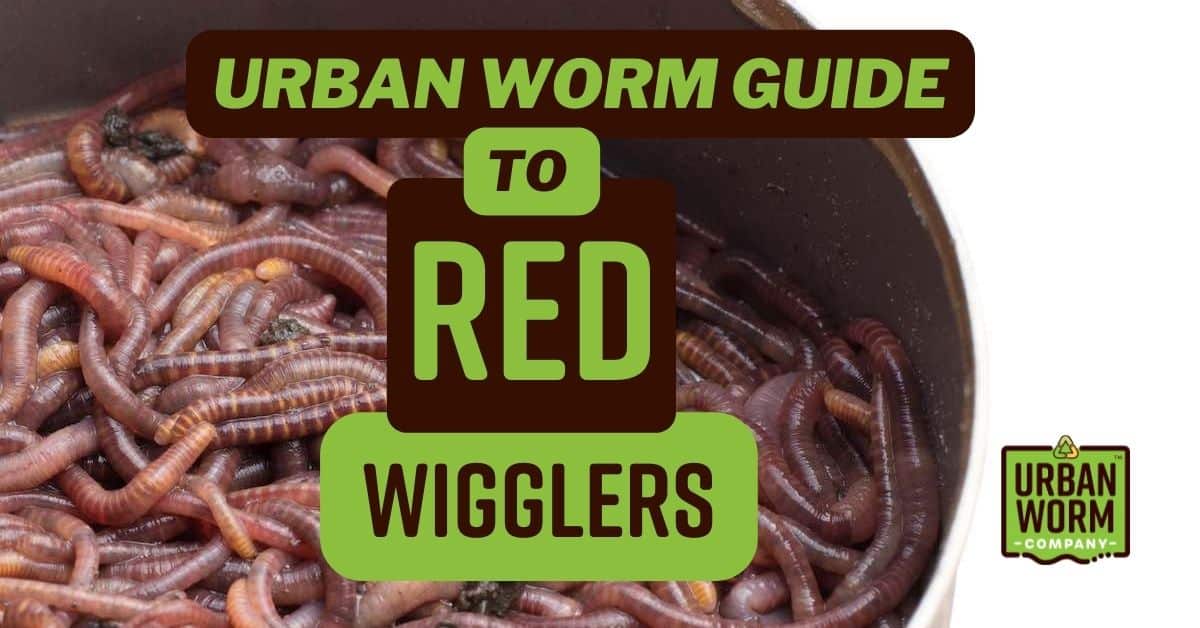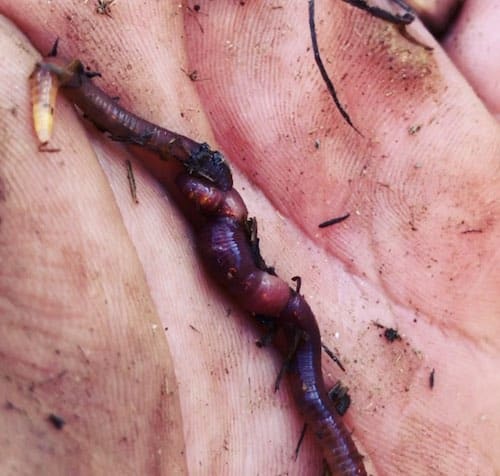Red Wiggler Worms Demystified: Opening the Keys of Vermiculture for Greener Living and Nutrient-Rich Soil
In the realm of sustainable techniques for enhancing dirt high quality and promoting eco-conscious living, red wiggler worms play a pivotal yet frequently neglected function. Red Wiggler Worms. Comprehending the details of caring for these worms, maximizing their setting, and harnessing their spreadings can lead to a greener lifestyle and much healthier dirt for plants to grow.
The Duty of Red Wiggler Worms
Red Wiggler worms play a vital role in composting systems by effectively breaking down organic matter into nutrient-rich castings. These ravenous eaters eat a range of organic materials, such as kitchen area scraps, yard waste, and paper items. As they feed, the worms' gastrointestinal procedures damage down the natural matter right into a fine, dark, and nutrient-dense material recognized as worm spreadings or vermicompost.
The castings produced by Red Wiggler worms are very helpful for dirt wellness and plant development. They are abundant in vital nutrients like potassium, nitrogen, and phosphorus, which are crucial for sustaining healthy and balanced plant growth. Additionally, worm castings have valuable germs and enzymes that assist improve soil framework, rise water retention, and improve nutrient uptake by plants.
Advantages of Vermicomposting

It enhances dirt structure, enhances soil aeration, and boosts soil moisture retention. Vermicompost additionally enriches the dirt with necessary nutrients like phosphorus, nitrogen, and potassium, promoting plant growth and total soil fertility.
Additionally, vermicomposting assistances lasting gardening techniques by providing a chemical-free and natural choice to synthetic plant foods. Red Wiggler Worms. This ecologically friendly approach not only improves the dirt however also assists lower reliance on harmful chemicals, advertising a greener and much more sustainable method of gardening
Establishing a Worm Container
When developing a worm container for vermicomposting, correct arrangement is critical to guarantee the success of the composting process. The very first step in setting up a worm container is selecting an appropriate container.
After including the bedding, present the red wiggler worms to the bin. It is recommended to begin with a small number of worms and progressively raise as they multiply. The worms ought to then be provided with food scraps such as fruit and vegetable peels, coffee premises, and eggshells. It is vital to stay clear of including meat, milk, oily, or salty foods to avoid drawing in bugs and creating undesirable odors.
Consistently keep track of the wetness levels and temperature level in the worm bin to guarantee optimal conditions for the worms. With proper setup and upkeep, the worm bin will successfully transform organic waste into nutrient-rich garden compost for your plants and yard.
Collecting Worm Castings
To successfully collect nutrient-rich worm spreadings from your vermicomposting system, a methodical harvesting approach their website is vital. When it comes time to gather the worm spreadings, there are a few crucial actions to comply with to guarantee an effective process.

Troubleshooting Common Issues
Determining and attending to common obstacles that may arise throughout the vermicomposting procedure is critical for keeping a effective and healthy and balanced worm bin. Adding excess food scraps can lead to an accumulation of moisture and acidity in the worm container, potentially hurting the worms. An additional problem is undesirable odors emanating from the worm bin.
In addition, if the worm populace is declining or the worms show up undesirable, it could be because of ecological stress factors such as extreme temperatures or pH levels. Keeping an eye on these Our site elements and making necessary modifications is necessary for the health of the worms. By fixing these usual issues promptly, vermicomposters can make certain a smooth and effective vermicomposting process while keeping a thriving worm population.

Conclusion
To conclude, red wiggler worms play an essential function in vermiculture by damaging down raw material right into nutrient-rich soil. The advantages of vermiculture include greener living and improved dirt high quality. Establishing up a worm bin is vital for effective vermiculture, and harvesting worm spreadings supplies beneficial garden compost for horticulture. By understanding and repairing usual concerns, individuals can open the keys of vermiculture for sustainable living and much healthier soil.
As they feed, the worms' gastrointestinal processes break down the natural issue into a fine, dark, and nutrient-dense product known as worm castings or vermicompost.
The spreadings produced by Red Wiggler worms are highly advantageous for dirt health and plant development. Including excess food scraps can lead to a buildup of moisture and acidity in the worm container, possibly hurting the worms.Furthermore, if the try this out worm populace is decreasing or the worms appear undesirable, it can be due to ecological stressors such as extreme temperatures or pH degrees. Establishing up a worm bin is vital for successful vermiculture, and harvesting worm castings supplies important garden compost for gardening.